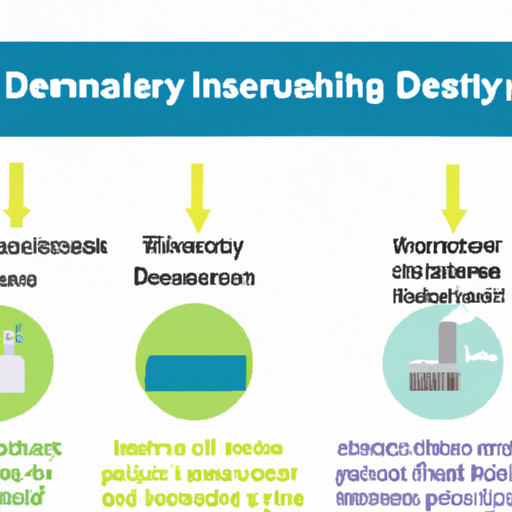

The Dehumidarity scenario encompasses several industries that are directly or indirectly affected by the concept of dehumidification. In this article, we will explore these industries and discuss the impact of dehumidification on each of them. From construction and manufacturing to agriculture and healthcare, dehumidification plays a crucial role in maintaining optimal conditions and improving efficiency. So, let's dive into the various industries that are part of the Dehumidarity scenario.

2. Manufacturing Industry: In manufacturing facilities, dehumidification is essential for maintaining specific humidity levels required for the production of various goods. Industries such as pharmaceuticals, electronics, food processing, and textiles rely on dehumidifiers to prevent moisture-related issues like product spoilage, equipment corrosion, and production line disruptions.
3. Agriculture Industry: Dehumidification plays a vital role in the agriculture industry, particularly in controlled environment agriculture (CEA) systems. These systems, such as greenhouses and vertical farms, require precise humidity control to optimize plant growth and prevent diseases caused by excessive moisture. Dehumidifiers help maintain the ideal humidity levels, ensuring healthy and productive crops.
4. Energy Industry: The energy industry benefits from dehumidification in several ways. Power plants and electrical substations require dry conditions to prevent corrosion and equipment malfunction. Dehumidifiers help maintain the necessary humidity levels, ensuring the reliability and efficiency of energy generation and distribution systems.
5. Healthcare Industry: Hospitals, clinics, and laboratories rely on dehumidification to maintain sterile and hygienic environments. Dehumidifiers help control moisture levels, preventing the growth of mold, bacteria, and other pathogens that can compromise patient health and safety. Additionally, dehumidification is crucial in preserving medical equipment, medications, and sensitive samples.
6. Hospitality Industry: Hotels, resorts, and other hospitality establishments utilize dehumidification to enhance guest comfort and prevent moisture-related issues. Dehumidifiers help control humidity levels in guest rooms, common areas, and swimming pools, ensuring a pleasant and healthy environment for visitors.
7. Storage and Preservation Industry: Dehumidification is essential for preserving valuable items such as artwork, documents, and artifacts. Museums, archives, and storage facilities utilize dehumidifiers to maintain stable humidity levels, preventing deterioration, mold growth, and insect infestation.
8. Transportation Industry: Dehumidification is crucial in the transportation industry, particularly for the storage and preservation of goods during shipping and warehousing. Dehumidifiers help prevent moisture damage to products, packaging, and containers, ensuring the quality and integrity of goods throughout the supply chain.
9. Residential and Commercial Buildings: Dehumidification is also widely used in residential and commercial buildings to improve indoor air quality, prevent mold growth, and enhance occupant comfort. Dehumidifiers are commonly employed in basements, crawl spaces, bathrooms, and other areas prone to excess moisture.
In conclusion, the Dehumidarity scenario encompasses a wide range of industries that rely on dehumidification for various purposes. From construction and manufacturing to agriculture and healthcare, dehumidifiers play a crucial role in maintaining optimal conditions, preventing moisture-related issues, and improving overall efficiency. As technology advances, the importance of dehumidification is likely to grow, making it an integral part of numerous industries worldwide.
The Dehumidarity scenario encompasses several industries that are directly or indirectly affected by the concept of dehumidification. In this article, we will explore these industries and discuss the impact of dehumidification on each of them. From construction and manufacturing to agriculture and healthcare, dehumidification plays a crucial role in maintaining optimal conditions and improving efficiency. So, let's dive into the various industries that are part of the Dehumidarity scenario.

2. Manufacturing Industry: In manufacturing facilities, dehumidification is essential for maintaining specific humidity levels required for the production of various goods. Industries such as pharmaceuticals, electronics, food processing, and textiles rely on dehumidifiers to prevent moisture-related issues like product spoilage, equipment corrosion, and production line disruptions.
3. Agriculture Industry: Dehumidification plays a vital role in the agriculture industry, particularly in controlled environment agriculture (CEA) systems. These systems, such as greenhouses and vertical farms, require precise humidity control to optimize plant growth and prevent diseases caused by excessive moisture. Dehumidifiers help maintain the ideal humidity levels, ensuring healthy and productive crops.
4. Energy Industry: The energy industry benefits from dehumidification in several ways. Power plants and electrical substations require dry conditions to prevent corrosion and equipment malfunction. Dehumidifiers help maintain the necessary humidity levels, ensuring the reliability and efficiency of energy generation and distribution systems.
5. Healthcare Industry: Hospitals, clinics, and laboratories rely on dehumidification to maintain sterile and hygienic environments. Dehumidifiers help control moisture levels, preventing the growth of mold, bacteria, and other pathogens that can compromise patient health and safety. Additionally, dehumidification is crucial in preserving medical equipment, medications, and sensitive samples.
6. Hospitality Industry: Hotels, resorts, and other hospitality establishments utilize dehumidification to enhance guest comfort and prevent moisture-related issues. Dehumidifiers help control humidity levels in guest rooms, common areas, and swimming pools, ensuring a pleasant and healthy environment for visitors.
7. Storage and Preservation Industry: Dehumidification is essential for preserving valuable items such as artwork, documents, and artifacts. Museums, archives, and storage facilities utilize dehumidifiers to maintain stable humidity levels, preventing deterioration, mold growth, and insect infestation.
8. Transportation Industry: Dehumidification is crucial in the transportation industry, particularly for the storage and preservation of goods during shipping and warehousing. Dehumidifiers help prevent moisture damage to products, packaging, and containers, ensuring the quality and integrity of goods throughout the supply chain.
9. Residential and Commercial Buildings: Dehumidification is also widely used in residential and commercial buildings to improve indoor air quality, prevent mold growth, and enhance occupant comfort. Dehumidifiers are commonly employed in basements, crawl spaces, bathrooms, and other areas prone to excess moisture.
In conclusion, the Dehumidarity scenario encompasses a wide range of industries that rely on dehumidification for various purposes. From construction and manufacturing to agriculture and healthcare, dehumidifiers play a crucial role in maintaining optimal conditions, preventing moisture-related issues, and improving overall efficiency. As technology advances, the importance of dehumidification is likely to grow, making it an integral part of numerous industries worldwide.